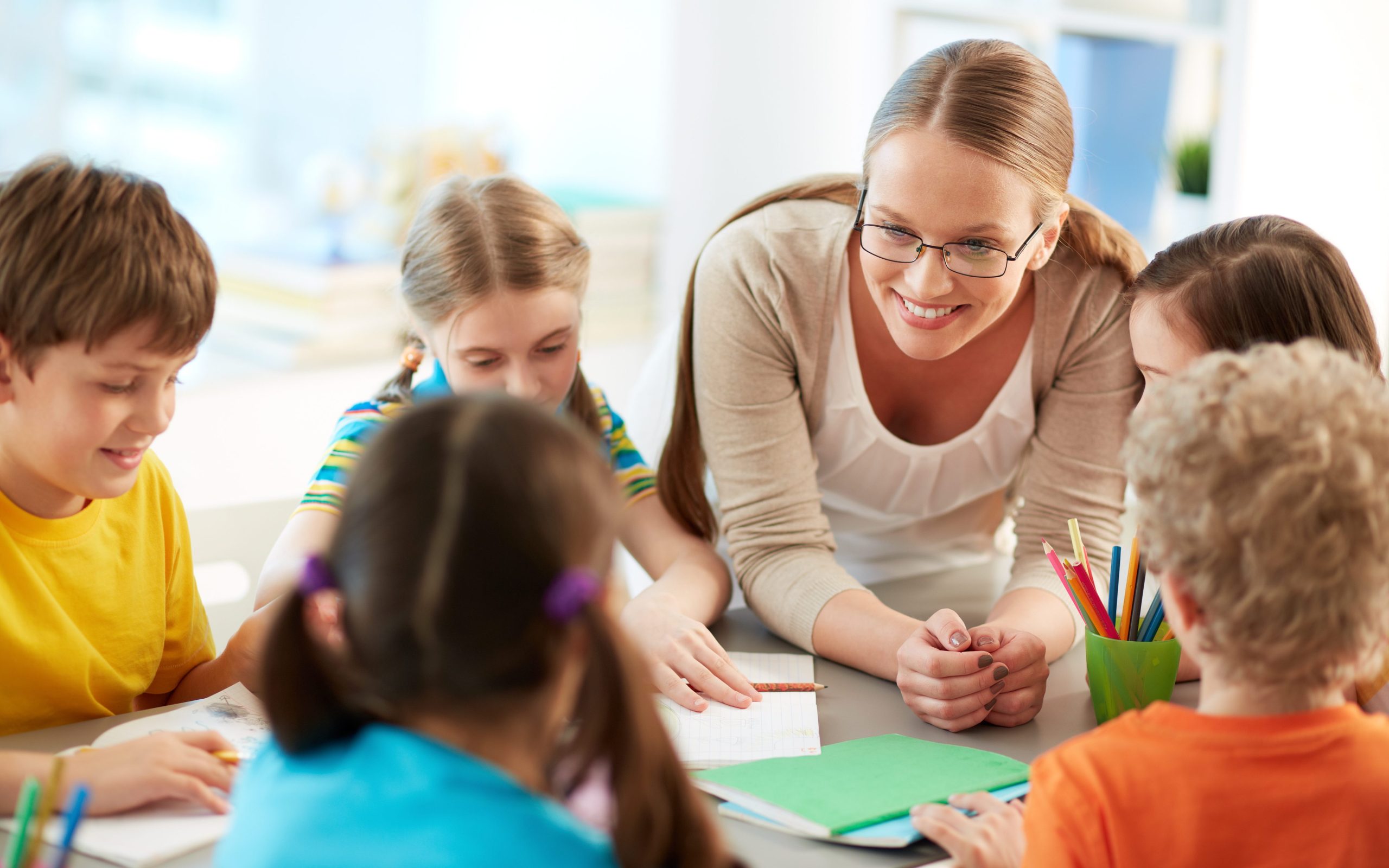
The Department for Education (DfE) published its Sustainability and climate change policy paper in April, some of which it has already started to implement earlier this year. The strategy brings together short, medium and long term climate actions in English education settings from early years right through to higher education.
Here at Show-me we’re delighted to see so much positive environmental change being put into action by the government with respect to sustainability and climate change. The full article is a daunting read, but luckily we’ve summarised the most important points for you. Here’s what you need to know:
There will be more learning in natural environments
Many of the actions being implemented in the strategy surround learning in natural environments. The DfE has said it will explore “opportunities to support education settings to deliver quality outdoor education”.
It has also pledged that “By 2023, we will: continue evaluating the UK’s first ‘Biophilic’ primary school, which will provide evidence of the impact of a greater connection to nature within the built environment, on the health and wellbeing of children and young people”.
So going forward we can expect to see more investment in creating green spaces on school land and within classrooms. We can also expect more lessons, extra-curricular activities, and school trips to take place outside and in nature.
If you’re in need of some inspiration for outdoor lessons, take a look at our article ‘Taking Learning Out Of The Classroom’ HERE.
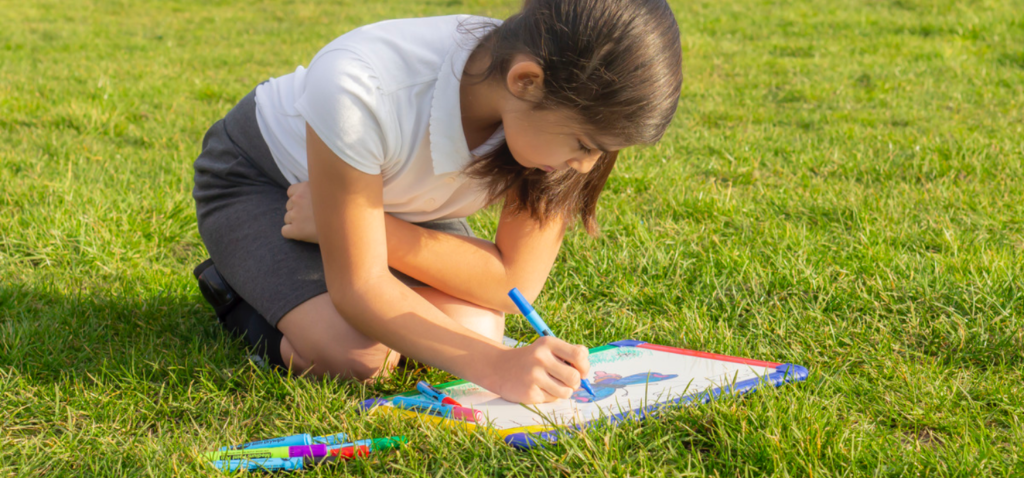
The curriculum will include more learning about the environment
In many pre-existing subjects, we can expect to see more lessons and topics that teach students about sustainability. The strategy outlines:
“The early years foundation stage (EYFS) framework ensures that all children develop an understanding of the world and the natural environment. As they progress through primary and secondary school, children and young people continue to build on this knowledge through science, geography and citizenship programmes within the national curriculum.”
Furthermore, the strategy aims to develop a ‘Primary Science Model Curriculum’ by 2023 which includes an emphasis on nature to help children ‘understand the world around them’.
Excitingly, there will also be an introduction of a new Natural History GCSE subject by 2025. The new qualification feeds into the government’s move to prepare and inspire young people currently in education for future ‘green jobs’ that support the transition to net zero and improved sustainability in Britain.
“In studying this GCSE, young people will explore organisms and environments in more depth, gain knowledge and practical experience of fieldwork and develop a greater understanding of conservation.”
The DfE will be monitoring the impact of the curriculum changes with a new yearly survey for school leavers which tracks the (hopefully) improving climate knowledge of students by the time they leave school.
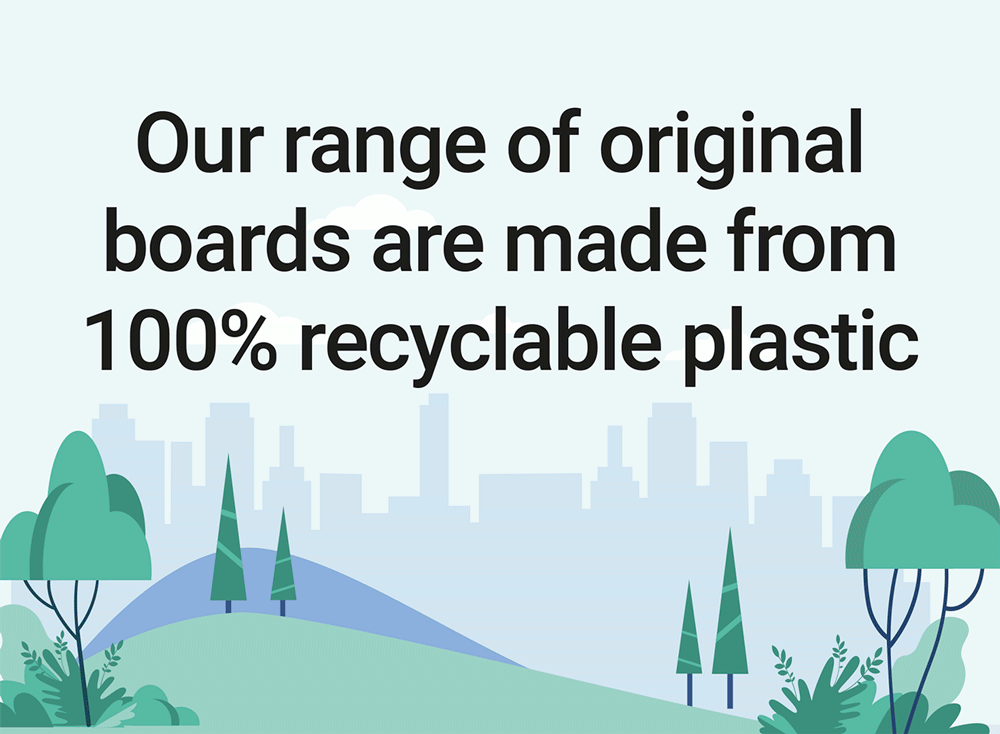
Sustainable changes to the routines and culture of schools
Many of the actions outlined in the DfE’s document surround the way that schools are run and the day-to-day activities that occur. For example, schools will be encouraged to gather data and take positive action on food waste, monitor and report on energy usage, and get involved in initiatives to increase active travel to school (such as travelling by bike or walking). These actions all intend to have the outcome of reducing the environmental impacts of educational settings.
There will also be roles for staff and students to play in helping schools and universities be accountable and take positive action. For staff, this will be the ‘Sustainability Lead’, who will be responsible for putting climate action plans into place in their institution. The DfE has said that there will be at least one in each school, and they will receive carbon literacy training in preparation for their new role.
Another crucial action outlined by the DfE’s climate strategy is its aim to “eradicate single-use plastics and encourage the use of reusable and recyclable materials in schools and encourage all other education settings to match this target” by 2025.
At Show-me we’ve been creating products with sustainability in mind for a long time already. Not only are mini whiteboards the most environmentally friendly method to gauge understanding without using endless reams of paper but Show-me boards are also 100% recyclable!
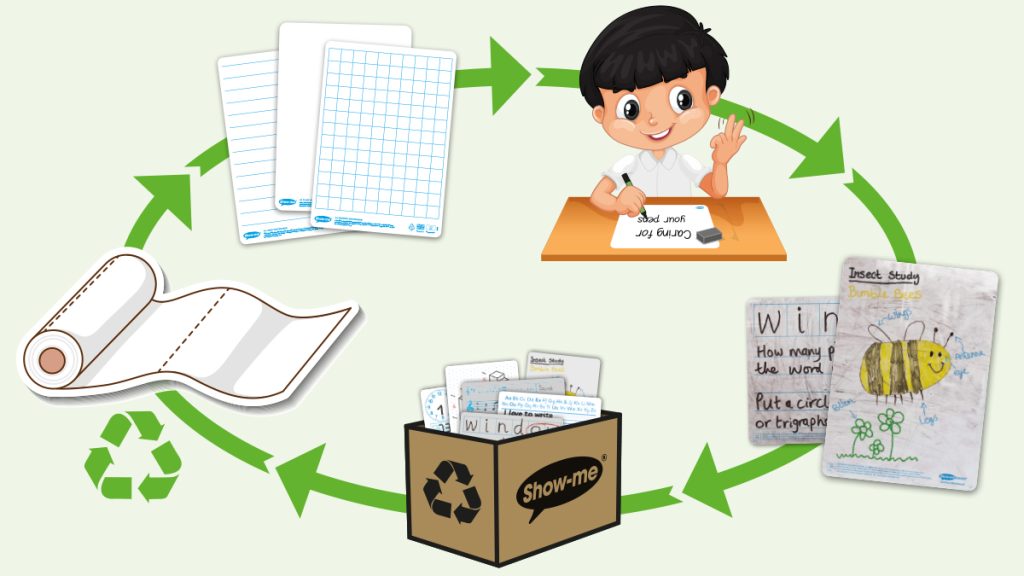
In addition to our whiteboards, we’ve also recently introduced our refillable whiteboard cleaner and sachet refills. These handy cleaners keep your whiteboards super clean and can save tonnes of single-use plastic, shipping emissions and money! Learn more about “Going Green”, the refillable whiteboard cleaner story HERE.
A final impact that the DfE’s sustainability strategy will have, is encouragement of all educational settings to promote the circular economy.
This will involve “providing guidance to reduce reliance on single-use items in favour of alternatives, such as reusable nappies, as well as recycled materials, second-hand uniforms and other consumables, such as sustainable cutlery and cleaning products”
At Show-me, we’re massively in favour of supporting the circular economy, that’s why we’ve created our mini whiteboard recycling scheme.
Our free ‘send-back’ scheme recycles all mini whiteboards*, whiteboard pens and whiteboard erasers.
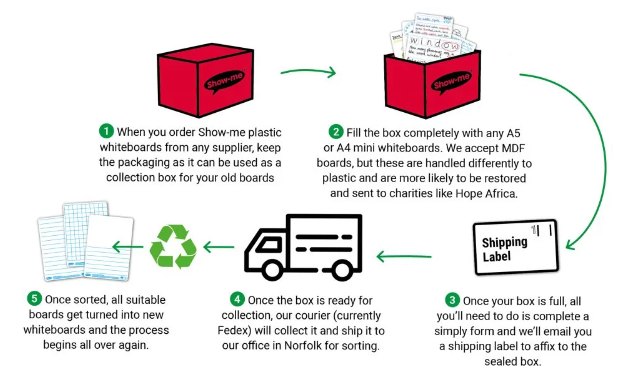
All you need to do is follow the instructions HERE to fill in the form and send the items through our collection service. Job done!

